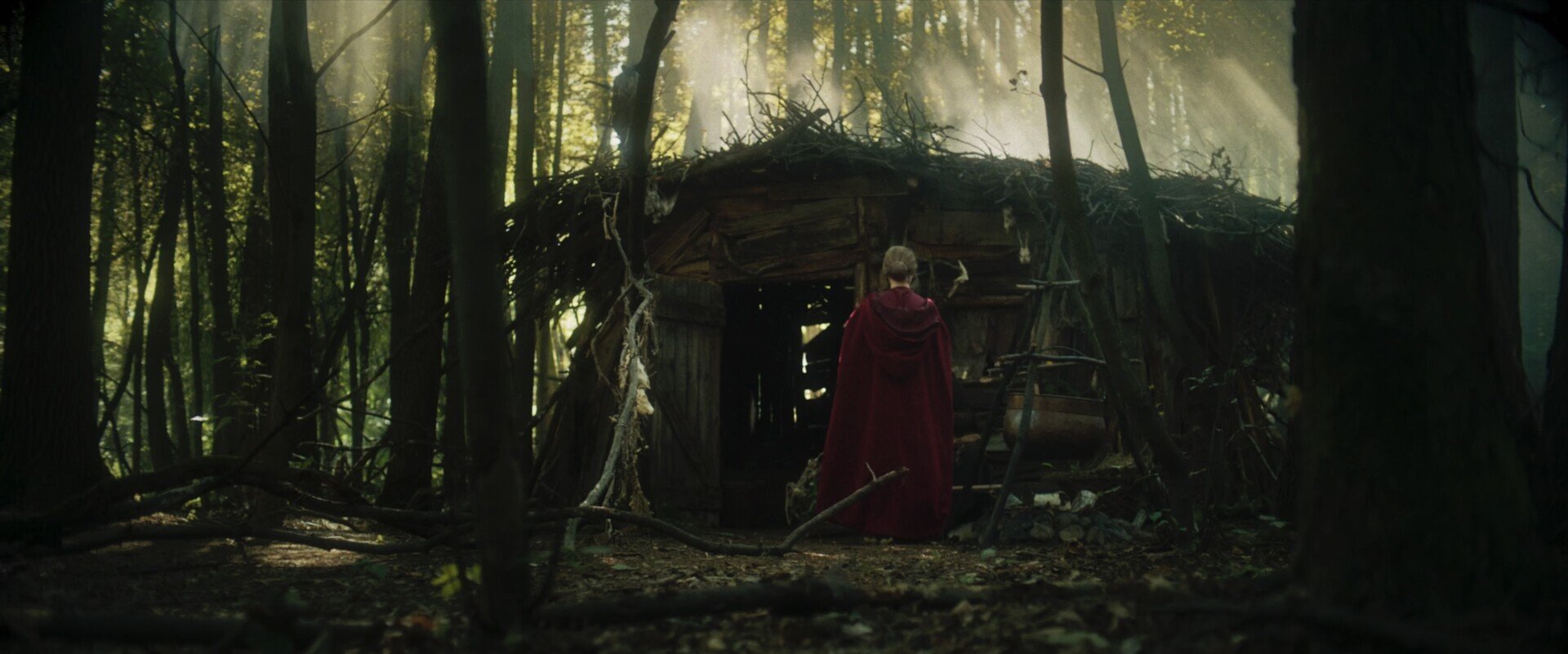THE CRONE: A SLAVIC FOLK TALE OF FEMININE POWER & SOLIDARITY
In Slavic folklore, the figure of the crone has always been something that fascinates us throughout generations. Many of us are at least somewhat familiar with “Baga Yaga,” the wicked witch who lives in a hut with chicken legs. This mobile hut allows the crone to move around and feast on children from nearby villages, a warning to those who are thinking of defying the norm. Catherine Kasima Kanda’s “The Crone” takes this Slavic tale and turns it on its head. Through the lens of generational pain and suffering, this retelling is an anthem of feminine power and solidarity.
Justyna Ducka as Milena
“The Crone” won the following awards in the 3rd Edition, Round One season: Best International Short Film, Best Sound Design (Pawel Uszynski), Best Cinematography (Michał Dolny), Honorable Mention for Best Editing (Arkadiusz Wojdyga, Catherine Kasima Kanda), Best Costume Design (Martyna Maryniak, Anna Stepien), Best Director, Best Production Design (Martyna Maryniak, Anna Stepien), and Best Fantasy Film.
Facing the truth in the woodland lake
The story begins with young woman, Milena (Justyna Ducka), who is running frantically through the woods. Despite warnings about the infamous crone (Ewa Szykulska), whose face has never been seen, Milena would rather disappear into the woods that deal with the abuse going on at home. Milena is lured into the enchanting and fantastical world of the crone and her wood nymphs, and she quickly learns that she is not alone in her suffering. While refusing to let her free until she faces her truth, the crone seems like more of a mentor than a nemisis.
Nymphs of the woods
Breathtaking cinematography, sound design, editing, production design, and costumes sweep the viewer into a mysterious and magical realm that takes hold and won’t let go. Will Milena be able to face her fears and embrace the truth? Is the crone an evil figure, or does she offer solace to the many Slavic women who are desparate to find commonality in their generational suffering? Who are these other women in the woods, and will Milena be able to find redemption within her past, present, and future?
Dance of the nymphs
Reminiscent of “Midsommar” and “True Detective: Night Country,” ultimately, The Crone urges the viewer to question historical accounts of those who are deemed as evil. Oftentimes the most powerful narratives stem from remembering and giving spiritual respect to the voiceless. Additionally, the tale cautions us to be careful not to get in our own way. Sometimes, if we don’t face and confront our pasts, we can become our own worst monsters.
Milena encounters the crone’s hut
Director Catherine Kasima Kanda is Warsaw School of Economics alumnus with an International Business degree, as well as a graduate degree of the Directing program at the Warsaw Film School and Screenwriting program at the Historical Film Academy.
The faceless crone
Kanda is an author of the short movies, commercials and experimental forms. She is a passionate student of women's history, Slavic culture, and myths and legends of the Peoples of the Earth.
The Crone Director: Catherine Kasima Kanda
Review: Alicia Oberle Farmer








